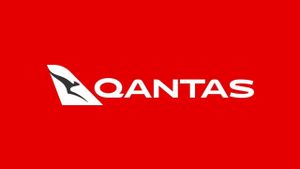South Korea is embarking on significant economic advancements as middle market companies announce ambitious plans to invest 120 trillion won ($84 billion) over the next three years. This initiative aims to create 300,000 new jobs, with special focus on providing opportunities for 200,000 young workers. The announcement came as part of efforts to address pressing societal issues, including low birth rates and troubling regional economic disparities.
The declaration was unveiled on Monday during the 10th annual Middle Market Enterprise Day ceremony held at The Plaza Hotel in Seoul. Chairman Choi Jin-sik of the Federation of Middle Market Enterprises of Korea (FOMEK) led the event, which gathered over 200 attendees, among them government officials, corporate leaders, and industry stakeholders. Choi articulated the vision for these middle market enterprises and their role within the South Korean economy.
Representing only 1.3 percent of all businesses, middle market firms encompass 5,576 companies as of 2022. Yet, they account for 14.4 percent of total sales, 12.8 percent of employment, and 18 percent of exports, making them pivotal players in South Korea's economic framework. FOMEK’s declaration emphasizes four core areas: investment, employment, exports, and corporate social responsibility, outlining strategies to boost these sectors.
Prime Minister Han Duck-soo, present at the ceremony as acting President, stressed the government’s commitment to backing middle market firms. He noted, "These companies underpin our economy, leading key industries such as semiconductors and materials. The government will reduce their burdens and provide stronger support." This commitment includes discussions around revising laws related to inheritance and gift taxes, aimed at easing succession planning for these businesses.
The proposed tax amendments have been hotly debated; they include the removal of the 500 billion won revenue cap for businesses qualifying for family business inheritance deductions. This would also increase the deduction limit from 50 million won to 500 million won. These changes, if passed, could provide much-needed relief to family-owned enterprises within the middle market sector.
Highlighting the significance of this initiative, Han's remarks underline the government's recognition of the unique challenges faced by these companies, especially as they strive to grow and remain competitive in dynamic global markets.
During the ceremony, awards were presented to 37 individuals for their notable contributions to South Korea's economic and industrial development, including Daechang Chairman Jo Si-young, who received the Gold Tower Order of Industrial Service Merit.
This ambitious investment plan not only seeks to bolster the economy but also aims to engage with social issues, including the declining birthrate, which poses challenges for the country’s future workforce. By targeting the creation of opportunities for young workers, the government and private sector are taking steps to mitigate long-term demographic challenges.
The broader goal is to integrate these developments seamlessly with existing infrastructure. The South Korean Ministry of Oceans and Fisheries pointed out the challenges posed by geopolitical uncertainties affecting the maritime logistics sector. They noted plans to invest around $10 billion to construct a new port at Changwon, which will interface with Busan Port to create the world’s largest container handling capacity.
"To maintain Busan Port’s reputation as a global transshipment hub and its competitiveness, we need to pursue strategies connecting the development of the new and existing ports," the ministry stated, hinting at the interconnectedness of South Korea's economic infrastructure planning.
Investments like these could significantly reshape the industrial and economic fabric of South Korea, offering more employment opportunities and strengthening the country’s international trade capabilities.
Though South Korea’s middle market enterprises represent just a small fraction of the business sector, their contributions to the economy are significant. With this declared investment and the supportive governmental measures, there is hope for invigorated growth, higher employment rates, and greater economic stability.
Looking forward, the integration of middle market companies with supportive government policies and strategic infrastructure improvements creates optimism for South Korea's economic future. The collaborative efforts of the private sector and the government reflect a broader vision for sustainable growth, enhanced corporate engagement, and improved quality of life for citizens.



